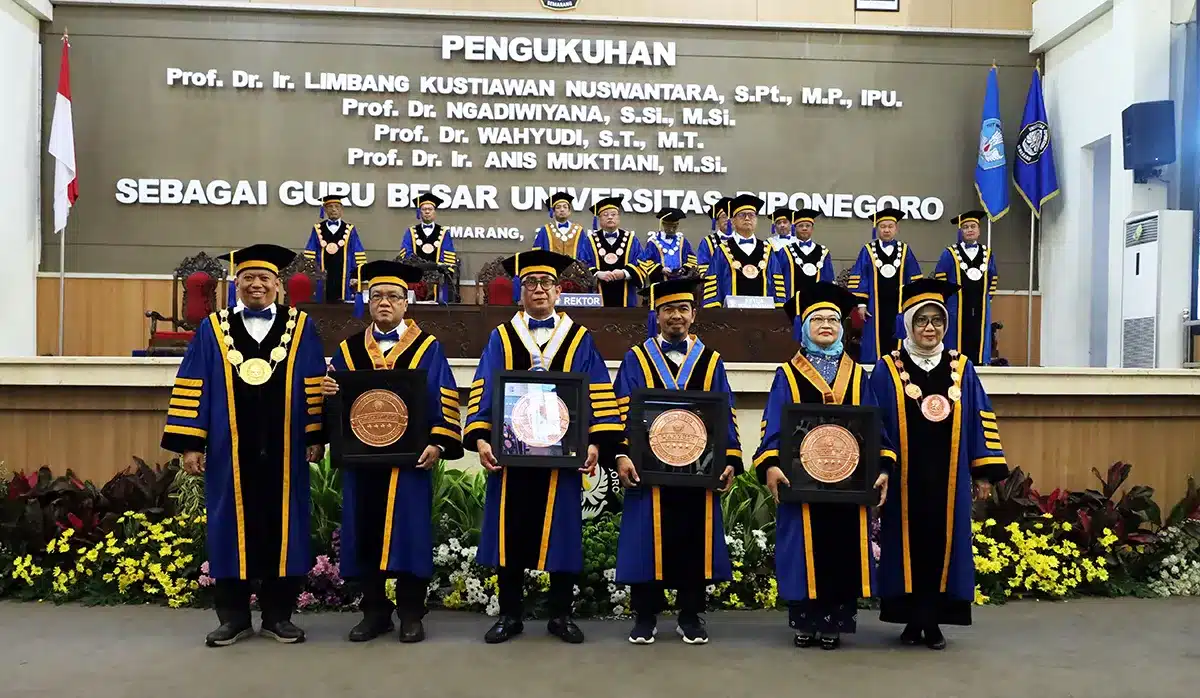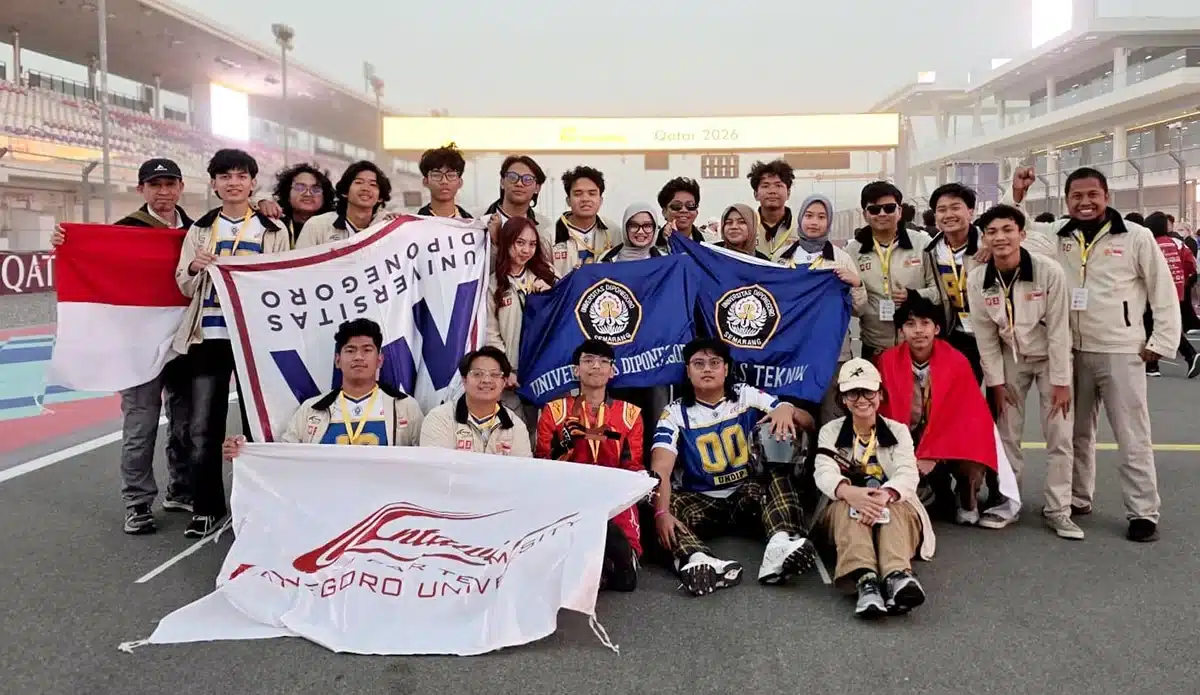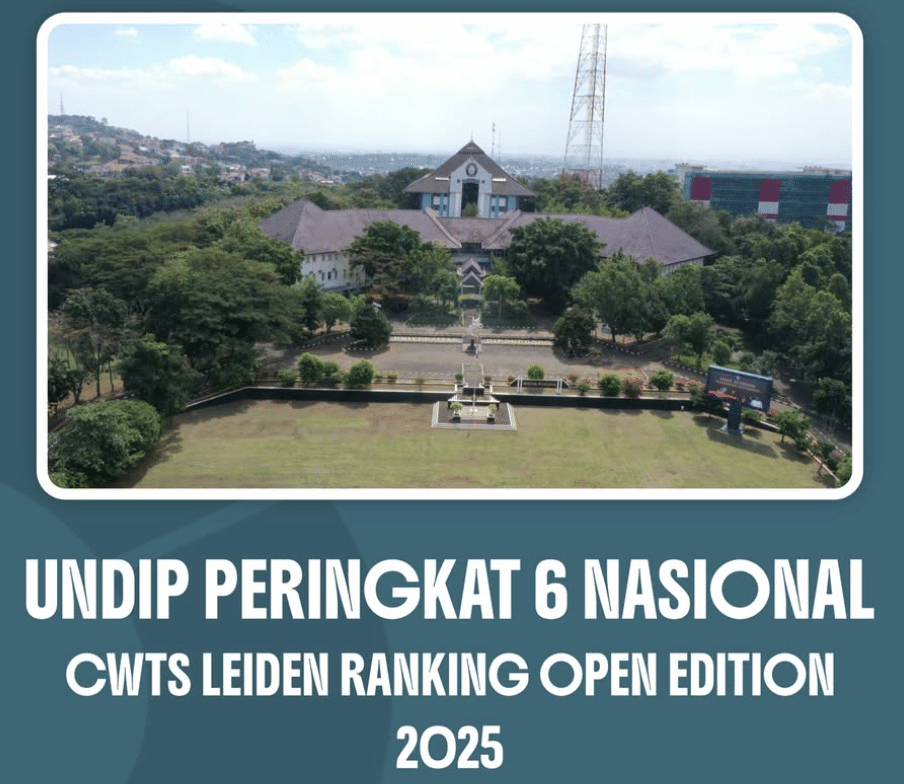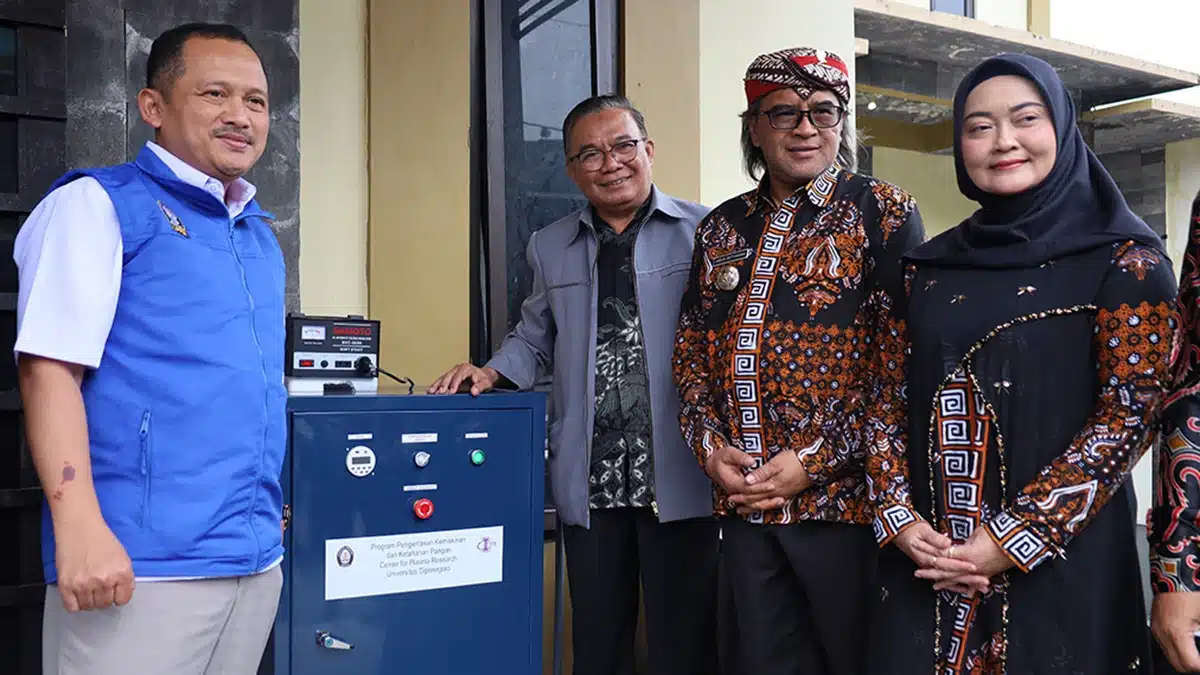Diponegoro University once again held a scientific paper presentation for three Undip professor candidates organized by the Diponegoro University Board of Professors, Monday (17/4). The three prospective professors are Dr. Meidiana Dwidiyanti, S.Kp., M.Sc. (FK), Dr. Adian Fatchur Rochim, S.T., M.T. (FT), and Dr. Fifiana Wisnaeni, S.H., M.Hum. (FH).
In her paper entitled “Development of Spiritual Mindfulness Interventions in the Prevention and Management of Mental Problems and Mental Disorders”, Dr. Meidiana Dwidiyanti conveyed that psychiatric problems and disorders are a burden of global disease that occurs in every country. This disease is one of the 15 main causes of disability worldwide and has a major impact on various aspects of life. Several psychiatric problems and disorders that many individuals experience include depression, impaired emotional control/regulation, medication adherence problems, coping skills problems in the family, self-efficacy levels, to individual self-resilience levels.
“Islamic Spiritual Mindfulness is one of the interventions with an Islamic spiritual approach to deal with various psychological problems and individual psychiatric disorders. With mindfulness, individuals will believe that every individual problem they face comes from God, and only God has the power to overcome their problems. The development of Islamic spiritual mindfulness psychotherapy is able to increase patient insight through awareness of behaviors that make patients suffer. This intervention also succeeded in raising awareness about the importance of complying with the treatment process. Mindfulness exercises carried out by patients make patients more focused on carrying out independent healthy target activities according to their goals and abilities,” she explained.
Dr. Adian Fatchur Rochim in his material entitled “Creating a Healthy Academics Publication Ecosystem by Building a Fairer Researcher Impact Metric Indicator” said that one of the valuable assets for researchers is scientific papers that have been published and indexed. Currently, the indicator for the value of the impact of researchers is measured by the number of published papers and the number of citations obtained from each paper. The world-recognized value of the impact of researchers is the H-Index by Hirsch in 2005. The H-Index has quite a lot of applications for measuring the publication performance of lecturers or researchers, consideration for promotion of researcher positions, as an alternative basis for granting research grants and ranking researchers/research/group/institution.
“The value of the H-Index when accumulated is grouped into performance indicators of research groups, departments, faculties, universities and countries. Given the importance of these indicators for evaluating the results of research publications with the aim of improving the quality of research, it is necessary to continue to evaluate the metrics of the impact of researchers. Several disadvantages of the H-Index have been identified. To improve the H-index, it is proposed to improve the H-index in order to improve the measurement method so that it becomes relatively fairer. In order to compare the performance of the measurement results of the proposed method with other indices, a comparison measure is needed. So it is also necessary to propose a measurement tool to assess the level of discrimination that occurs from the calculation results of each method of measuring the impact of researchers. The results of the calculation of inequality are represented in the value of the discrimination index,” he said.
Meanwhile Dr. Fifiana Wisnaeni discussed “Measuring the Quality of Democracy in Indonesia Through General Elections with Integrity”. The affirmation of Indonesia as a democratic country can be seen in the Preamble to the 1945 Constitution of the Republic of Indonesia which stipulates that the people as holders of sovereignty can exercise their own sovereignty by electing their representatives, both those who sit in the legislative and executive institutions. In addition, democratic character can also be seen in regulation on the republican form of government which determines that the President is elected from, by and for the people.
“Democracy, which is constitutionally regulated in the Indonesian constitution, must maintain its integrity so that it can achieve the goals and objectives of the state as mandated by the Preamble to the 1945 Constitution of the Republic of Indonesia. The integrity of elections must be carried out by all parties related to elections, both organizers, supervisors, election participants as well as the voting public by not committing acts that are prohibited in the Election Law, either in the form of prohibitions or criminal acts. The compliance of the parties in the election to comply with the provisions in the election law can show the good quality of democracy in Indonesia, “ explained Dr. Fifiana. (LW – Public Relations)









